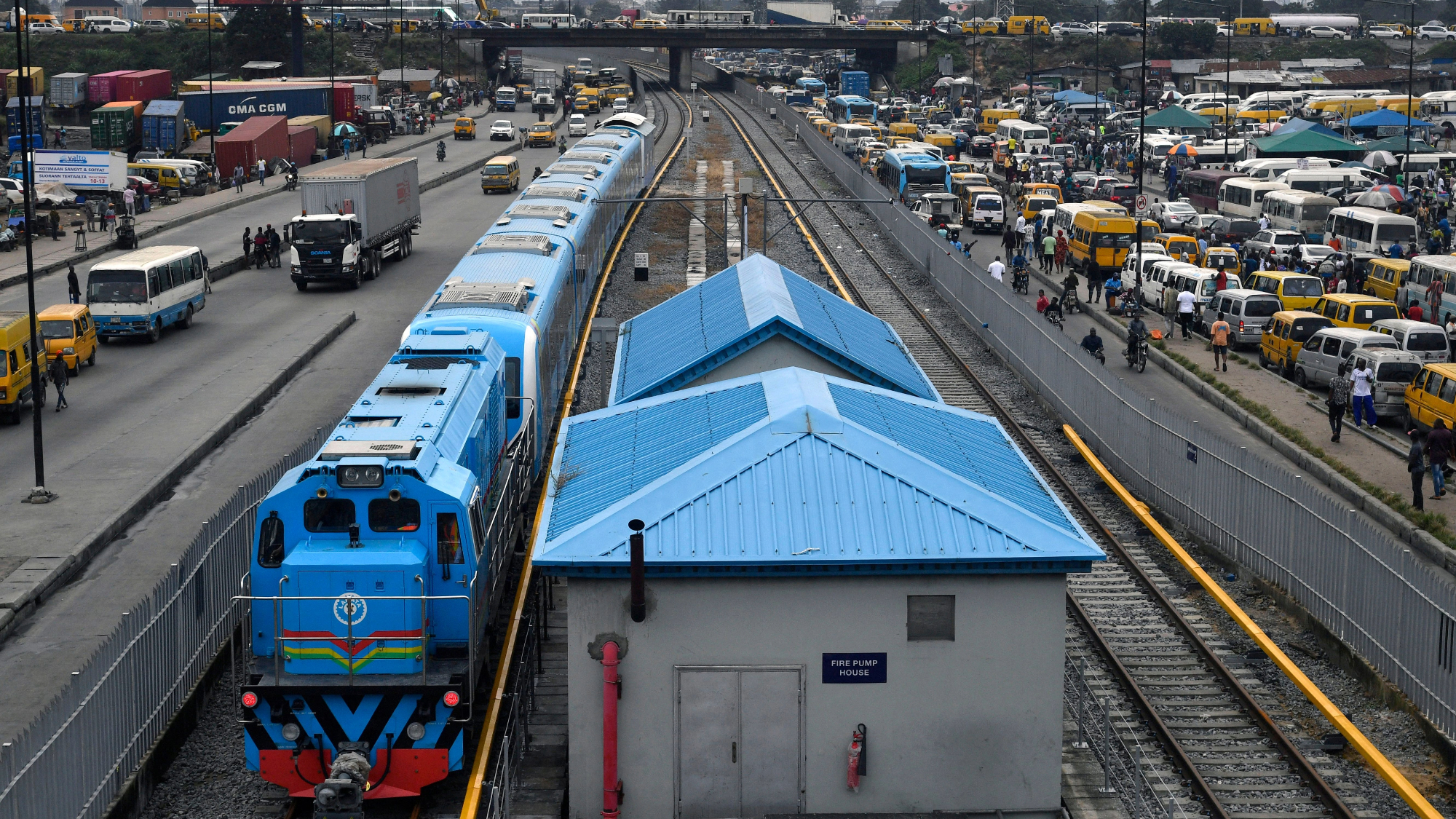

Travelers within Lagos, Nigeria, can finally board a light-rail line connecting two busy regions of the world’s worst metropolis for traffic. Although construction on Lagos’ Blue Line Rail began in 2009, years of funding issues delayed officials’ intended 2011 launch date by over a decade. Now, however, an estimated 150,000 commuters each day will be able to travel the 8-mile route in under 25 minutes—a stark improvement from the sometimes three hour long journey the same distance takes on Lagos roadways.
With over 24 million residents, Lagos has long suffered from notorious traffic issues. The Nigerian city’s infrastructure problems, greenhouse emissions, and overall dissatisfaction with roadways repeatedly earned it the moniker of the world’s worst region to travel—even when compared to similarly congested cities such as Los Angeles and Delhi.
[Related: A high-speed rail line in California is chugging along towards 2030 debut.]
According to Quartz, aspirations for a light rail line within Lagos date as far back as 1983, but decades of funding and civic issues prevented the project from moving forward. Meanwhile, the Lagos-based Danne Institute of Research estimates traffic congestion annually results in a loss of over $5.2 billion due to lost work hours from commuters spending a cumulative 14.1 million hours on the road per day. The World Bank estimates Lagos residents spend more of their household budgets on transportation costs than any other major African city.
Construction for the $132 million endeavor finally completed earlier this year, with official service starting on August 4. For the first two weeks, the Blue Line Rail will run 12 trips per day before upping the daily total to 76. A separate phase of the line will extend the total track line to roughly 17 miles, while Lagos intends to complete a Red Line Rail connecting eastern and western sections of the city by the year’s end. According to Lagos Governor Babajide Sanwo-Olu speaking via Bloomberg, the second line is already 95 percent ready.
“A mega city cannot function without an effective metro line,” said Adetilewa Adebajo, chief executive of Lagos-based CFG Advisory, told Bloomberg on August 5. “However, Lagos needs not just the metro line. It has to develop waterways too, being a coastal city. It needs an integrated transport system. Those are what will be able to relieve the congestions in the city.”
